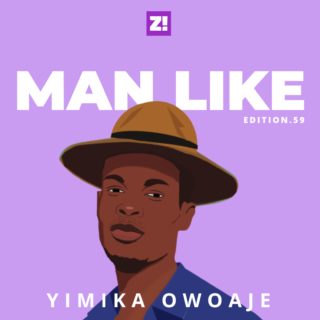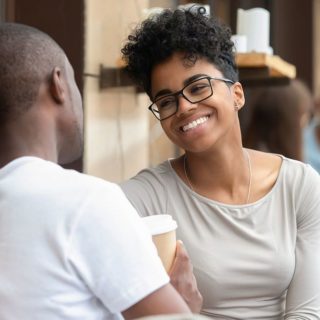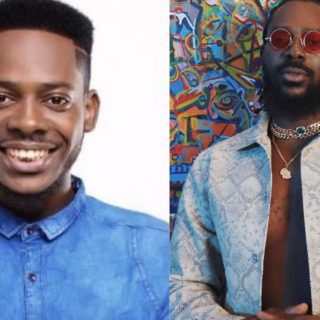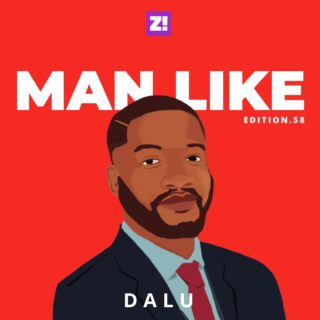Modern day beauty standards sets a high bar for what society considers attractive. Anything outside the small box is considered unappealing, without consideration for the emotional and mental well-being of people living in those bodies. I met Tayo* through a comment he left on a Zikoko Instagram post about fatphobia, as he had gone through the same. Tayo agreed to talk to Zikoko about his experience being a fat man in Nigeria and abroad, how he had to endure endless bullying and how he is now taking charge of his life.
As Told To Femi
I was born a big baby. Not many babies are born bigger than 4kg, but I was above 5kg at birth. Growing up, I was always referred to as the “fat kid”, so I naturally became introverted. I went to a Nigerian public secondary school and the kids there were mean and verbally abusive. I was bullied a lot. Dealing with the taunts from the other kids proved too much for me. I wasn’t confident. My self-esteem was centred around my weight.
It didn’t stop with the kids. Everyday life was tough from the fatphobia I faced everywhere. Bus conductors would embarrass me and ask me to pay for two seats. Because of those experiences, I’ve always had to opt to pay for taxis to get around, even when I could barely afford to. This made me retreat into a shell, socially.
The diets were endless too. There was always one diet or the other people were recommending, so I could lose weight. I’d go without meals, taking only parsley, celery and spinach blends as meals for entire days. I just wanted to lose weight. I’d imagine myself in a good looking outfit but because I was fat, it didn’t look good on me. Finding clothes that fit was always a struggle because people hardly make clothes for fat people.
My younger brother tried to be supportive. Whenever I started going on extreme diets, he’d complain and try to discourage me, telling me how much he wanted my stature. I’m considered a huge person. At 6 feet 1 inch tall, I’m bigger than most people I come across. People gave me funny looks when I entered a room or boarded a bus. This has made me quite self-conscious about my presence. I started using big, loud headphones so I could lock myself inside my own fantasy world, away from all the stares, laughs, and insults.
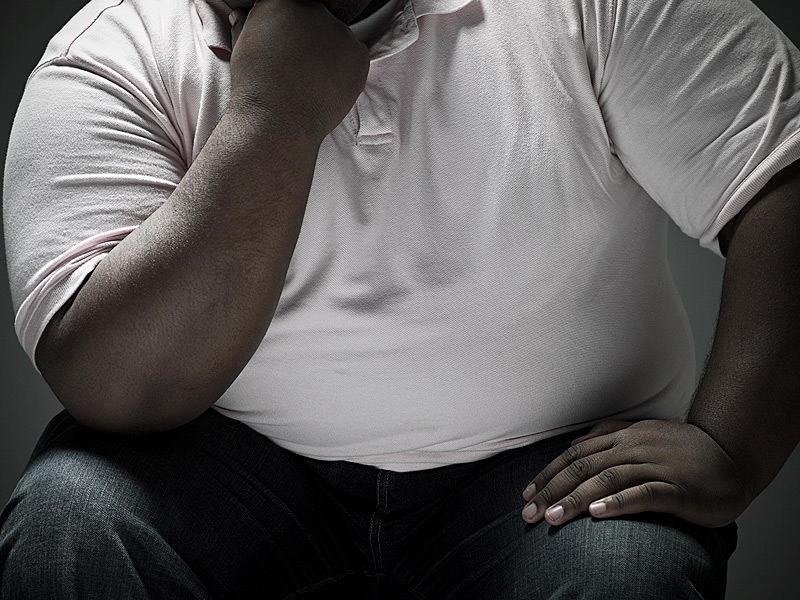
My confidence had been so damaged that I couldn’t even think of talking to women because I had heard too many times that I was too big and not “their spec”’. I resigned myself to online dating so that I could at least impress my date with my charming personality before she sees me and starts to have second thoughts. I’d send only flattering pictures and pictures taken in angles that made me look a bit smaller to women.
When I travelled to North Cyprus for my university education, I felt more comfortable in my own skin because there were people bigger than me everywhere, so my weight did not draw too much attention. This helped me gain confidence. On the other hand, I gained weight whenever I was abroad and this made me stand out, even more, when I returned to Nigeria. People would make comments about my weight everywhere I went. They never knew that just a word or sentence from them can fuck up your entire day or even week. Every comment people made about my weight damaged my self-confidence even more. Nigerians lack the emotional intelligence to realise that there are some things you shouldn’t say to people. Non-Nigerians were more sensitive and would never make comments about my weight.
I tried different ways to lose weight. I hated working out but I enjoyed jogging, so I’d run several laps around the university stadium in northern Cyprus. However, with winter came a return of the weight I shed because I couldn’t jog in the cold. In 2018, I was diagnosed with degenerative disc disease, a condition when one or more of the discs between the vertebrae of the spinal column deteriorates or breaks down, leading to pain. My doctor in Cyprus said I had to avoid physio workouts as it could damage my spine further. She advised me to exercise with softer aerobics so I started swimming. It was effective and I dropped some weight.
I assumed that a diet consisting of foods like wheat would help me drop weight but this wasn’t true. I was eating only brown foods and avoiding milk and sugar but apparently, some people don’t digest high fibre foods like wheat and this could lead to even more weight gain. I learned that I had to first figure out what type of body I had before choosing a diet. I also discovered I couldn’t eat fruits like apples or any citrus fruit because they were too acidic and caused me to have ulcers.
When the doctors decided that I couldn’t lose weight through the conventional ways — I couldn’t diet because of my stomach ulcer and I couldn’t do aerobic exercise due to my bad back — they advised me to opt for gastric sleeve surgery for weight loss. In this procedure, surgeons remove part of your stomach and join the remaining portions together to make the stomach much smaller.
After the surgery in 2019, I worked with a nutritionist who helped me figure out a diet that could help me heal and maintain an ideal weight. I didn’t do any exercises except walking 30 minutes a day. It worked, and I started to drop more weight.
When I returned to Nigeria, I even dropped more weight due to how chaotic everything in Nigeria was. I was constantly stressed and dropped from140kg pre-surgery to 97kg back in Nigeria. Again, Nigerians were insensitive but it was different now. Some people made jokes about preferring me at my previous weight, asking if I was sick. These comments were very hurtful to my self-esteem so while losing weight helped my health, my self-esteem still took a hit.
I also found that people who body-shamed me when I was fat came around to tell me that they didn’t like my slimmer stature. Whenever I posted a photo, someone I had tried to date would text me to say she didn’t like my new look and preferred me when I was fat. Meanwhile, when I had feelings for her,she told me she couldn’t date me because I was too fat. Now that I had shed the weight, she decided that I looked “too sick”. I experienced a lot of pain and depression, despite not being fat anymore.
Still, I continued on my weight loss journey, not because of other people’s opinion but for myself.
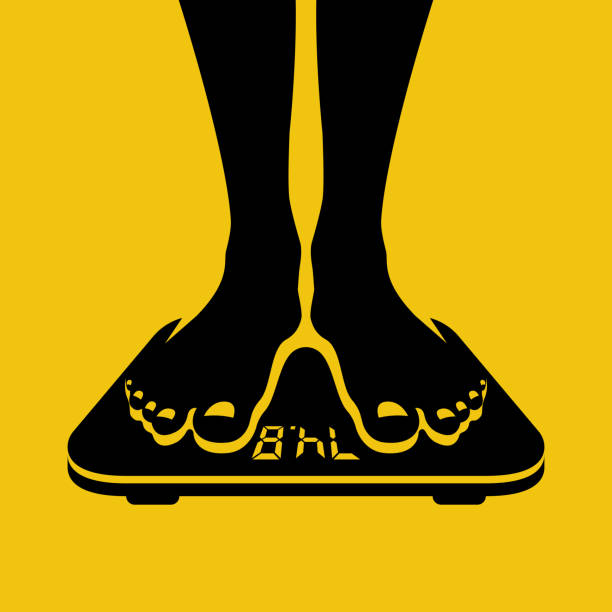
Every day, on the internet and in real life, I’m bombarded with people making all sorts of comments about fat people, and it really hurts. I once had to comfort a fat friend of mine in my church because of a mindless joke someone made, which they probably didn’t think was fatphobic. She tried to shrug off the comments but I can see how it affected her because they got to me too. The comments are everywhere and it seems like everywhere I went, there was always someone who thought they had the right to comment on my weight. Nobody really knows the emotional struggles that come with being fat.
People would give advice like, “Stop eating so much.” Ironically, there were times that I wasn’t even eating. I would starve myself of meals but I’d still hear comments like that. People should learn to be more sensitive to how people feel because it’s really none of their business.
Although I’m much better now, my self-esteem has taken such a beating that I don’t plan on having long term relationships or getting married. Since I lost weight, it’s been nice to receive people’s compliments about my looks. The most basic compliments lighten up my day, but I wish I didn’t need their validation to feel good.
Now that I’ve hit an acceptable weight, I still feel like everyone’s eyes are on me. I’m still slightly uncomfortable when I walk into rooms because I don’t know why they’re staring at me. I’m also obsessed with keeping my weight down to a particular level because I’m constantly worrying about getting fat again. However, I’m learning to live life on my own terms, taking it one day at a time.

